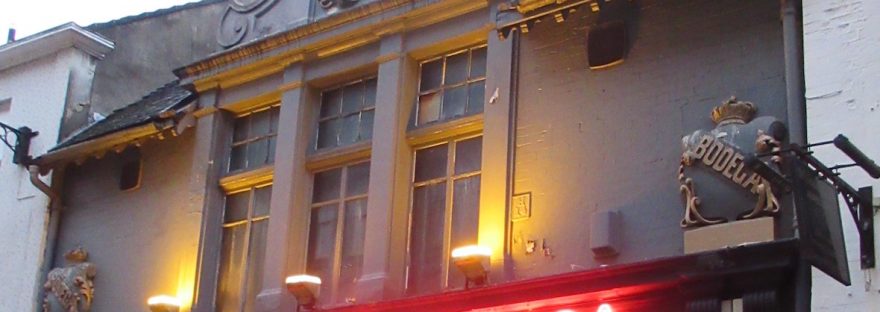Previously, I began telling the story behind the building of The Bodega on Pelham Street. These days it’s a popular music venue and bar, but it’s been through several image changes over the years… I spoke to Alan Clifford on BBC Radio Nottingham about the building.
While it’s nothing to do with Watson Fothergill (as far as I know!) this building has opened up some interesting avenues of research and I’ve found myself scouring archives, reading about the social history of the English pub and obsessively asking people if they remember drinking there in the 1970s and ’80s…
Part one of this blog left off in 1904. The Bodega was listed as a Billiard Saloon, and seems to have departed from the Bodega Company’s Wine Bar model. The First World War hit the English licensed trade hard, with opening hours dramatically reduced, “treating’ (i.e. buying drinks for other people), giving credit and the long pull (serving more than the correct measure to attract custom) were all made illegal. (The minimum drinking age of 18 didn’t come in until 1923, and children could still buy alcohol from pubs to take home to their parents as long as it was in stoppered containers!) The war also pushed up the price of drink, and it stayed up, while the actual strength of drinks fell. For more on this and all things PUB, read The Local: A History of The English Pub by Paul Jennings. (By the time you read this I’ll have taken it back to the library...)
The 1915-16 Kelly’s Trade Directory of Nottingham lists Bodega Wine Co. Ltd. at 23 Pelham Street, trading as Bodega for the Bodega Wine and Spirit Merchants. Thomas S Poole, of 48 Harlaxton Drive is the manager. (Their phone number, Nottingham 1880, stayed the same into the 1940s.)
Robert Banks Lavery, the original owner of the Bodega Company, died in 1915 leaving his fortune of £13,2723 (approx. £ 15,049,738.89 in 2019) to various Catholic charities. The Bodega Company share price fluctuated after the war, but the business seemed to be steady around the country.
In March 1916, the Aberdeen Daily Journal reported that The Bodega Company had been admonished in the High Court by the makers of a certain beef drink, for passing off Oxo and “other meat preparations” when orders were placed for Bovril. The defendant denied the accusations but the injunction was passed and The Bodega Company paid costs.
1921 was a particularly bad year for the company’s share price, as the country recovered from the war.
In 1927, at the Nottingham Bodega, there was one of a spate of fires, leading to the Nottingham Evening Post headline: “Incendrism suspected!” Barrels of oil from the Nottingham Perfumery Co. caught fire in the passage. The branch is called The Bodega Hotel at this point, and a Mr Dominic is the employee who telephoned for the fire brigade, averting any serious damage.
In 1928, Slater’s Restaurants acquired Bodega. Slater’s were one of the largest catering companies in the world at this time. The million pound take over led to the company being known as Slaters and Bodega, bringing Bodega’s 30 outlets and 2 hotels into the company. Catering supplies had become integral to the operation. Bodega had previously been known for their outside catering, providing food and drink for race meetings, agricultural shows and the like. In 1931 there was a further takeover bid by Welsh firm RE Jones, but this failed.
One night in April 1931, the manager of the Nottingham Bodega, John Edward Marshall, was killed on Radford Road when a bus struck him after he alighted from a tramcar on his way home to Noel Street. A military man, he had seen action with the 10th Hussars. At least 11 members of staff from Bodega Wine And Spirit Company’s Saloon attended his funeral.
Plans in Nottinghamshire Archives show that improvements were made to the toilet facilities and the layout of the Bodega in 1933 and 1936. The ground floor now had a bar and a “cold counter”. Newspaper reports of a break-in by some young boys in 1940 refer to the Bodega simply as “a public house”.
In the 1950s, Billiards and Snooker were the main attractions of the Bodega in Nottingham, with several matches warranting newspaper reports on the games and their results.
In 1954, Slaters and Bodega were taken over by Charles Forte’s catering and hotel empire (to become Trust House Forte in later years). In 1956, JA Charles is installed in Pelham Street as the licensee.
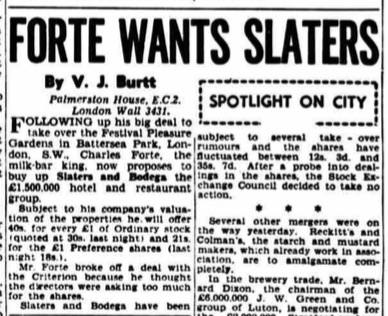
Here the trail goes a little cold, as Bodega gets swallowed up into the Forte empire. But there are photographs showing what the outside of the Bodega looked like in the 1960s and 1970s.
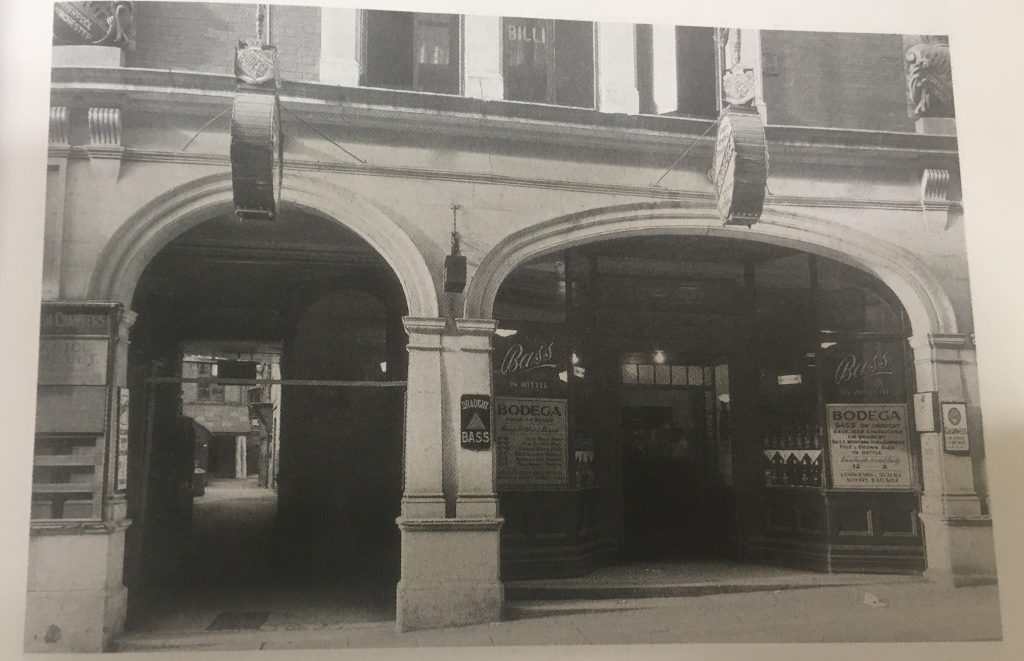
By 1966 the Bodega in Nottingham was being run by Ind Coope Brewery from their Derby office. In 1967 they added the stairs to the front of the building and did some improvements to the toilets inside.
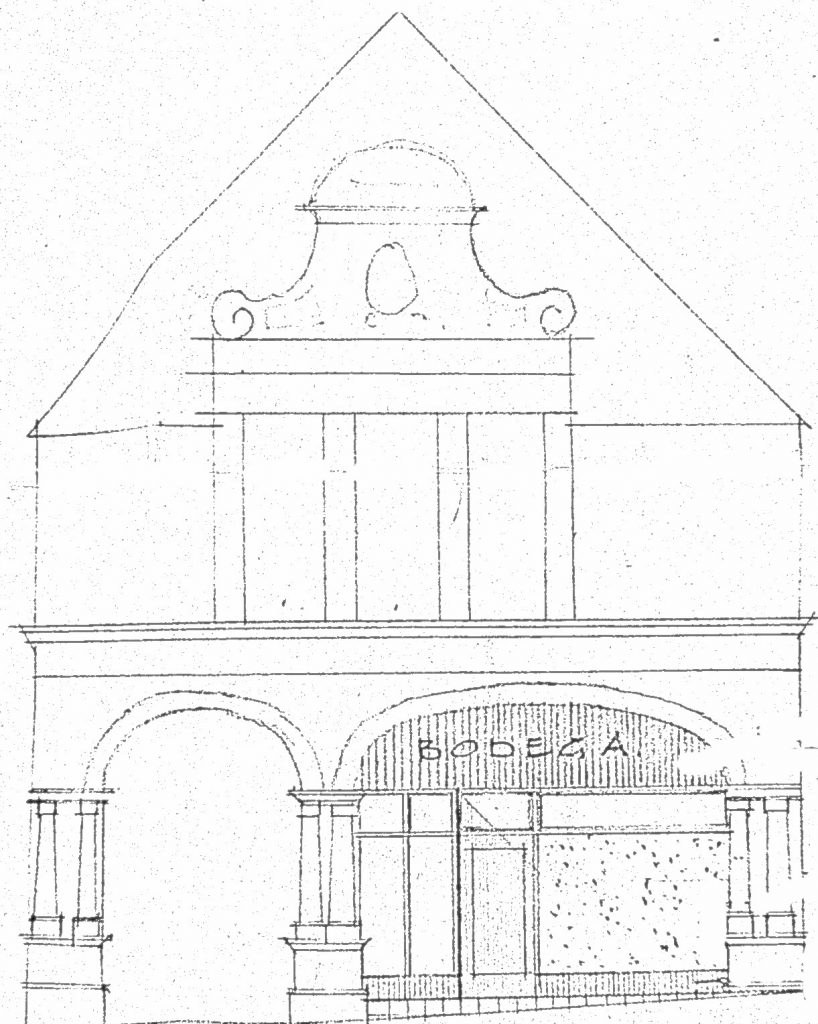
Ind Coope were still running the pub in 1970 when they added an extension over both floors to the rear, containing the Ladies’ toilets upstairs and a store room downstairs.
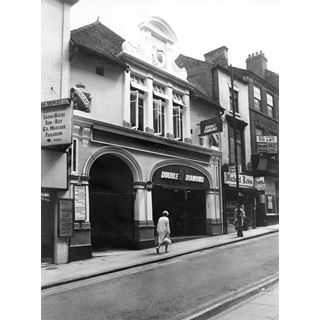
Ind Coope were involved until at least 1983 (photos below). They had become part of Allied Breweries in 1961, merging with Ansells and Tetley Walker. Allied in turn merged with food and catering giant J. Lyons and Co. in 1978 to form Allied Lyons, then again in 1992 with Carlsberg to become Carlsberg-Tetley. I haven’t been able to find out (as yet) when Bodega left the Forte empire (as it doesn’t tend to be noted when companies are sold off).
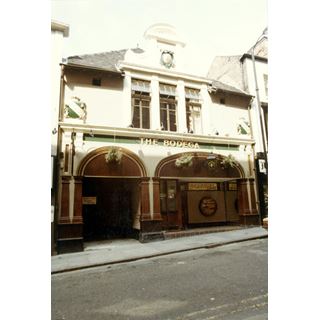
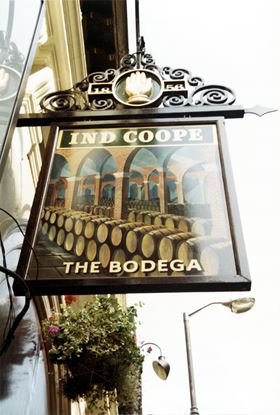
Some people I’ve spoken to remember a bierkeller-feel to the pub in the 1980s. Licensing laws again have an effect on the way pubs are organised in 1987-1988, with the introduction of flexible drinking times.
Ansells, who are quoted in 1988 as the owners of the Bodega, ring the changes and refurbished the bar as Cairo’s Disco Bar… The Evening Post reported:
“ Three traditional city centre pubs are being transformed into upmarket bars for young trendsetters in a £860,000 refit by owners Ansell’s. By the end of August… Bodega will have become Cairo’s. Ansell’s plan to create a circuit of bars with style and sophistication for Nottingham’s young trendsetters – and hope they will also cut down on night-time city centre violence. … Cairo’s Disco bar, which opens around August 23, will spin the discs until 12,30am on the first floor with a bar down below. … Ansell’s regional director: “Nottingham has more class, more fashionable people with real style, than any other city in the East Midlands…”
New look for 3 city centre pubs. Evening Post 12 July 1988.
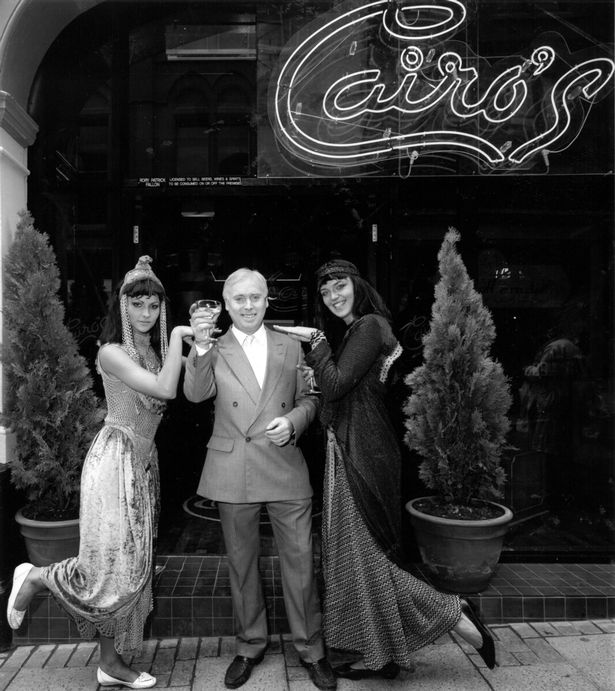
Cairo’s is remembered as being “very neon”… it also featured as a location in an episode of Central TV’s “Boon” in 1990.
By 1993 though, Ansells had refitted the bar once more, this time to become Irish-themed Rosie O’Brien’s Pumphouse, a chain with branches across the Midlands (there was another Nottingham branch in Carrington on Mansfield Road, in 2019 the pub is called Turners.)
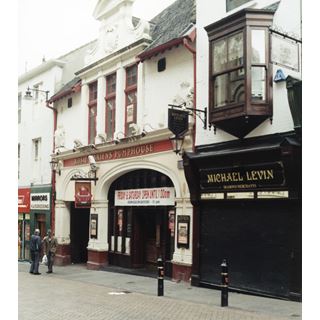
In 2004 the pub became The Social, under the management of The Breakfast Group, who run music venues in London and other parts of the UK.
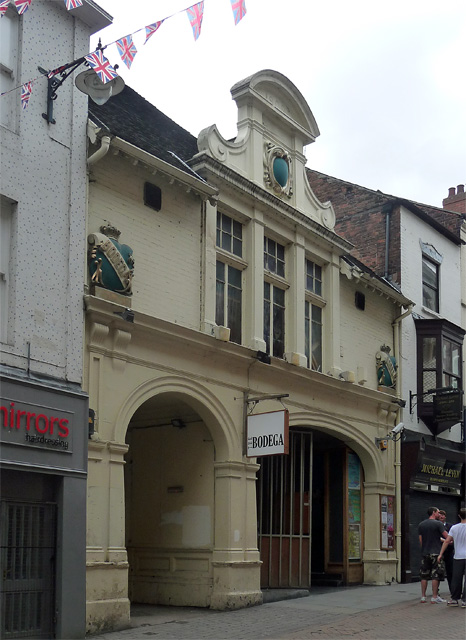
In 2004, Nottingham’s music venue promoting powerhouse DHP took over and in 2007, the venue’s name reverted to The Bodega.
Now The Bodega is celebrating 20 years as a music venue with a special gig on 1st December 2019.
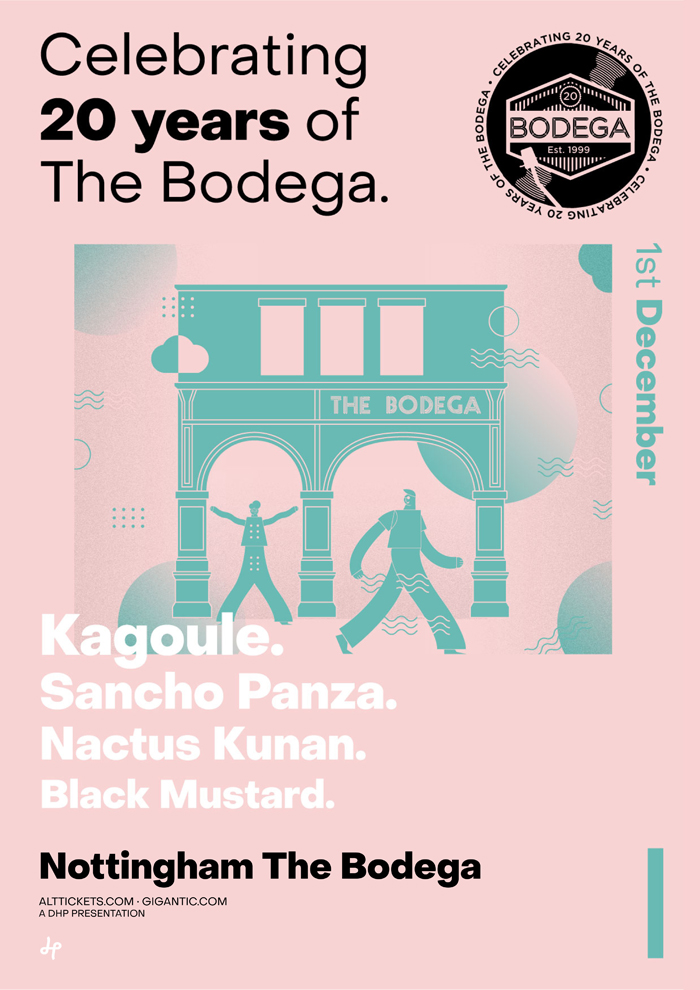
If you’d like to hire me to conduct in-depth research and detective work into buildings, businesses, architecture or local history, please get in touch!
The Watson Fothergill Walk and Hine Hike, as well as illustrated talks, will return with dates in 2020!
UPDATE: Here’s an article on The Social years featuring an interview with founder Jeff Barrett.
